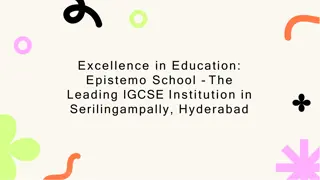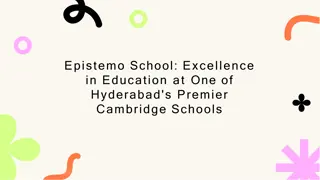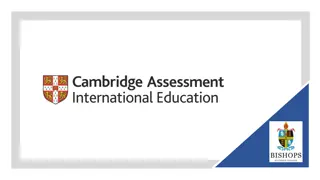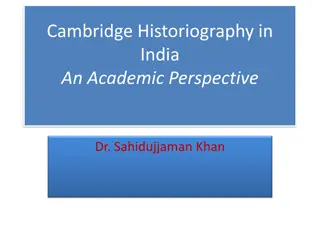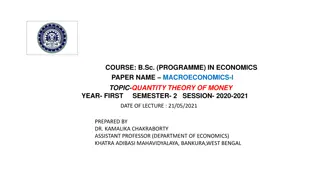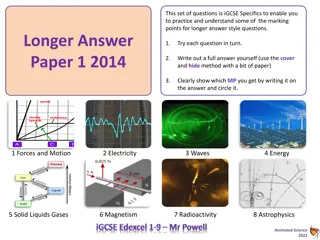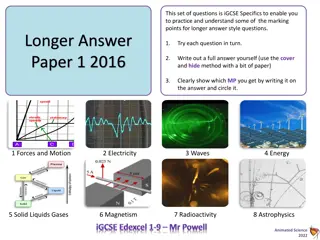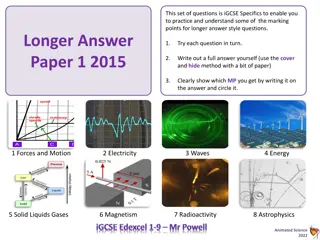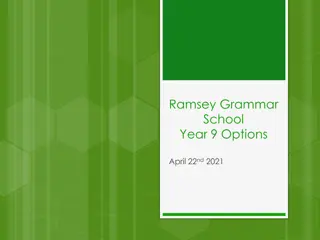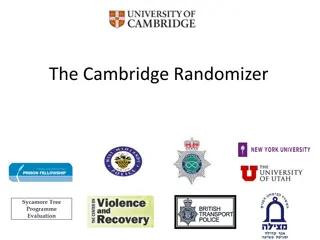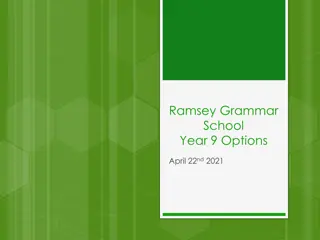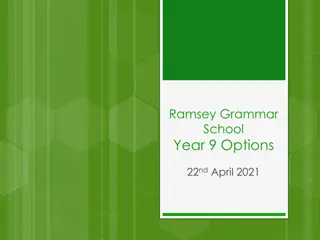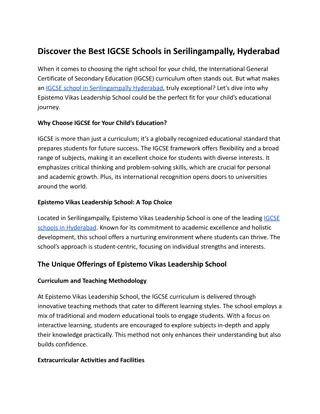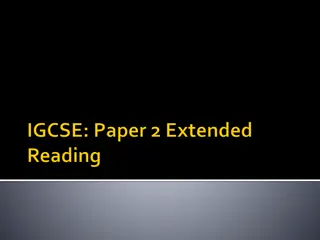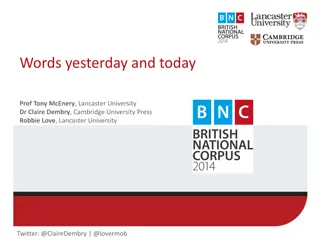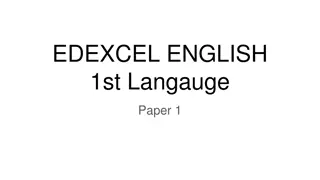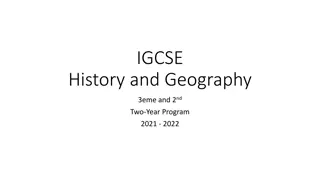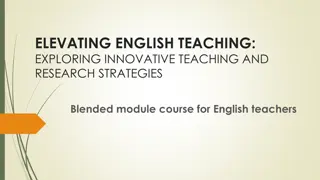English Language Cambridge IGCSE Course Overview
Students of the Ramsey Grammar School Year 9 English Language Cambridge IGCSE course will engage in reading and analyzing various fiction and non-fiction texts, honing comprehension skills, crafting written pieces with clarity and purpose, and enhancing their ability to summarize and re-imagine content. Success in the course is linked to qualities such as independent learning, dedication, and a high work ethic, with good grades opening doors to college, apprenticeships, and employment opportunities. The course emphasizes the importance of regular reading and provides tips for home support to further develop language skills.
Download Presentation

Please find below an Image/Link to download the presentation.
The content on the website is provided AS IS for your information and personal use only. It may not be sold, licensed, or shared on other websites without obtaining consent from the author.If you encounter any issues during the download, it is possible that the publisher has removed the file from their server.
You are allowed to download the files provided on this website for personal or commercial use, subject to the condition that they are used lawfully. All files are the property of their respective owners.
The content on the website is provided AS IS for your information and personal use only. It may not be sold, licensed, or shared on other websites without obtaining consent from the author.
E N D
Presentation Transcript
Ramsey Grammar School Year 9 Options 22ndApril 2021
English Language Cambridge IGCSE, English First Language 0500
How is the course assessed Paper 1 Reading Assessment 2 hours 50% Paper 2 Directed Writing and Composition 2 hours 50%
What is covered in the course Students will read a range of fiction/non-fiction/biographical extracts for meaning. They must be able to answer a range of comprehension questions on those extracts and also explain, in some detail, how effects are created within the texts. Furthermore, students must be able to paraphrase the extracts, thereby revealing a clear understanding and also summarise relevant information from what they have read. Students must also be able to write accurately, clearly and with a clear focus on a purpose (narrative/discursive/descriptive). They should be able to craft their sentences for different effects and will write persuasive speeches, essays, journal entries, newspaper reports, stories and descriptive paragraphs. In their writing, they will be asked to take what they have read and re- imagine it with a different purpose and audience.
Qualities needed for success, skills developed Readers and those who read at least one new text a month. Students who are prepared to extend themselves independently, spending additional time on preparing essays, reading around the subject and organising their ideas outside of lesson time. Students who have a high expectation of their own work ethic, refusing to settle for work that does not represent their full effort. Almost all careers are furthered by a good GCSE in English Language. Good grades make college, sixth form, apprenticeships and full employment options available and more attainable.
Texts and additional resources Main texts provided in-class Further information available at Parents information evening in September.
How can home support Read. Let students see you reading. Leave books lying around the house. Take your child to the library and encourage them to take risks and try texts that are more mature. When watching TV together, discuss the themes, character developments and landscapes of fictional dramas. When watching non-fiction, discuss how information is presented, who the documentary is for and what the content means. Buy a good newspaper such as The Guardian and discuss the content with your child. Leave the paper around at home so that students can pick them up and read them. Perhaps invest in a magazine subscription such as The Week (theweek.co.uk) which offers a range of well-written, non-fiction articles. Summarising information is one of the most challenging skills that students are met with in the language GCSE and parents can help by encouraging summarisation in conversation or when watching programmes together.



